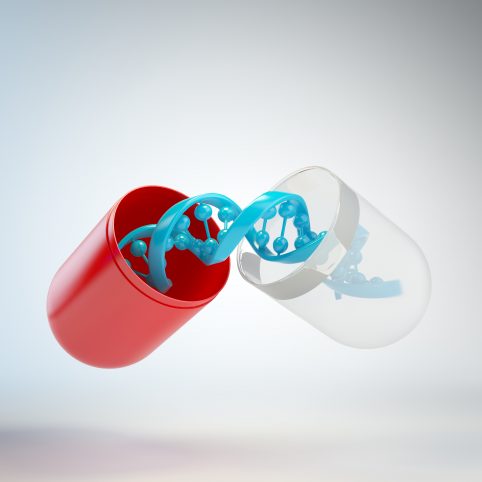Gene therapy treats a disorder by inserting a gene into a patient’s cells instead of using drugs or surgery. Researchers are testing several approaches to gene therapy, including:
- Replacing a mutated gene that causes disease with a healthy copy of the gene.
- Inactivating or \’knocking out\’ a mutated gene that is functioning improperly.
- Introducing a new gene into the body to help fight a disease.
There are currently six companies developing gene therapy for factor IX deficiency and two companies developing gene therapy for factor VIII deficiency. The longest established and most successful gene therapy trial to date, is that of University College London and the Royal Free Hospital in London. They have already treated ten people with severe factor IX deficiency and achieved steady factor IX expression between 1% and 6% following a single injection of up to five years ago. Their work has prompted several other companies to begin work on factor IX gene therapy and the Royal Free Hospital in London are now starting a new factor IX gene therapy programme which will involve a new vector delivery system with the aim of achieving even higher long-term expression of factor IX in the region of 15%. We are delighted that the Royal Free Hospital and their development company have agreed to include Ireland in the clinical trials for their new factor IX gene therapy. They have also agreed to include Ireland in the clinical trials for their factor VIII gene therapy which will be commencing in 2017. They are one of two organisations or companies currently developing gene therapy for factor VIII deficiency.
The first two patients have been infused with factor VIII gene therapy late last year in the UK. The gene therapy trials will be open to adults over the age of eighteen with severe haemophilia. Gene therapy gives us the enticing prospect of an effective cure for haemophilia. If gene therapy can result in a constant expression of 15% – 20% of factor VIII or factor IX, then this will be an effective cure as factor concentrate would be required on very rare occasions or for major surgical procedures.
Challenges remain with all of these therapies and in particular with gene therapy, the scale up production will not be easy. The economics of these new products and consequently their availability will also be challenges we will have to face in the future. However, it is safe to say that with all of these new products under development, the future has never looked brighter for haemophilia therapy and there is a real possibility of transforming the quality of life for people with haemophilia in the next five to ten years.
June 2016
